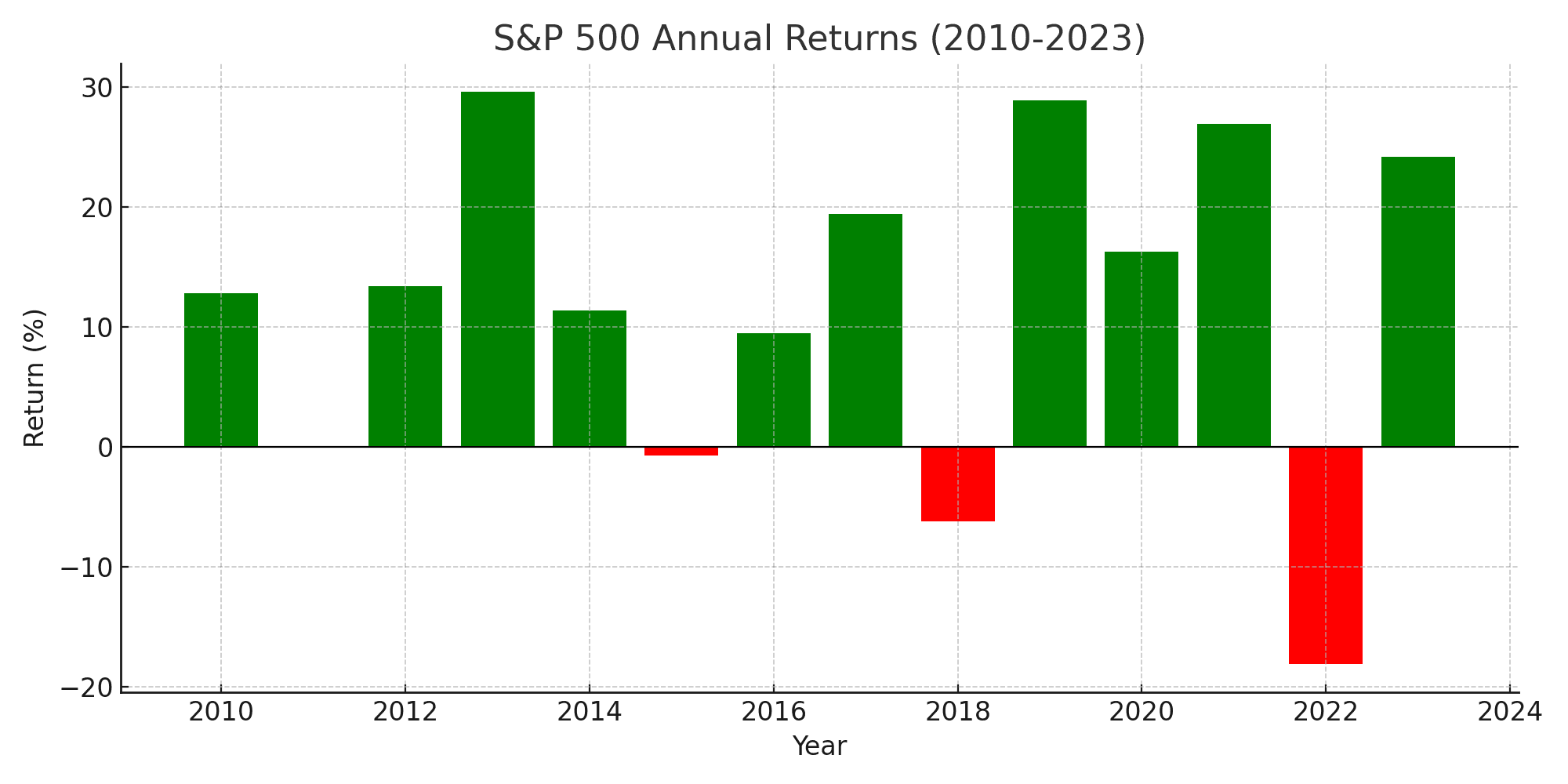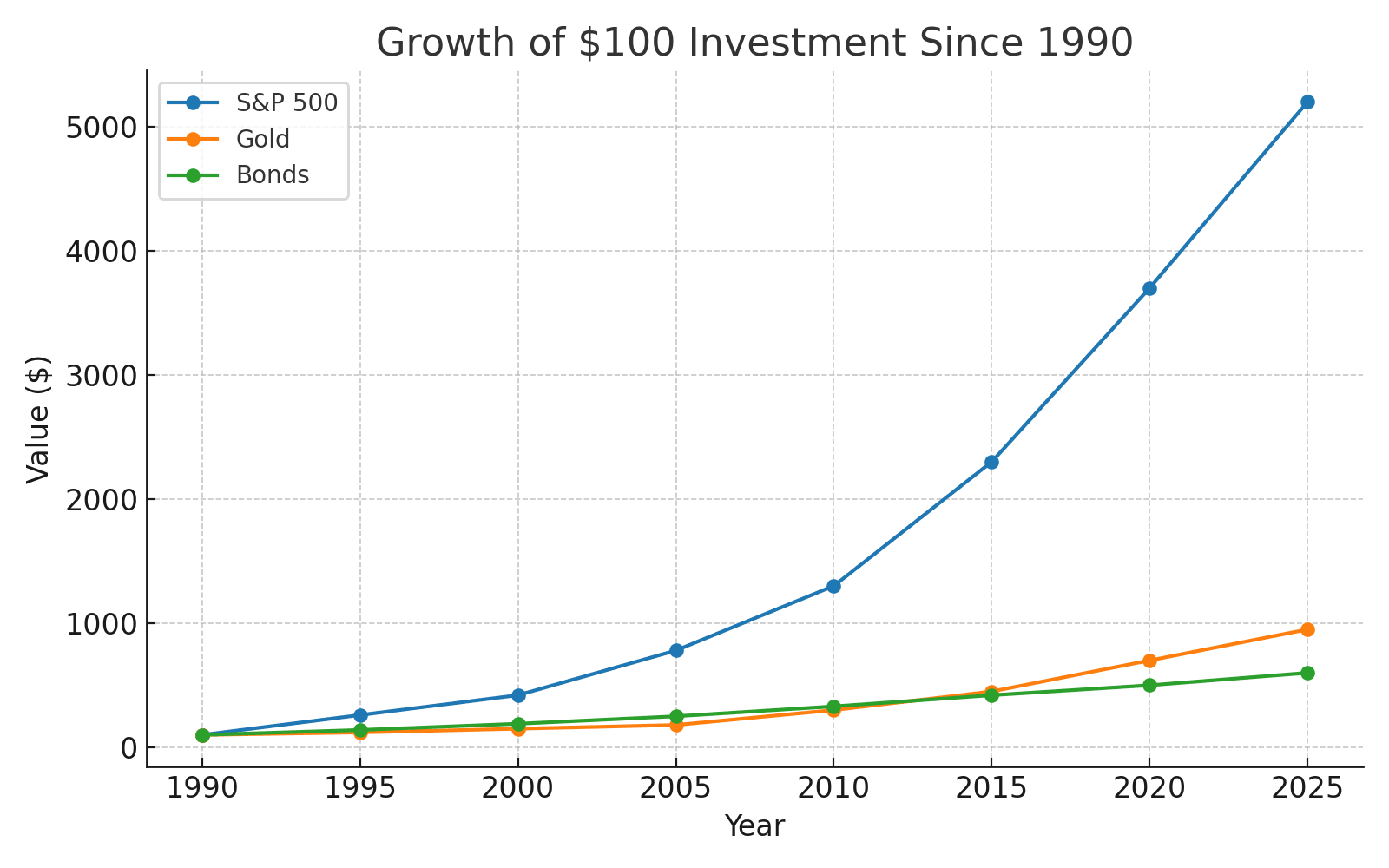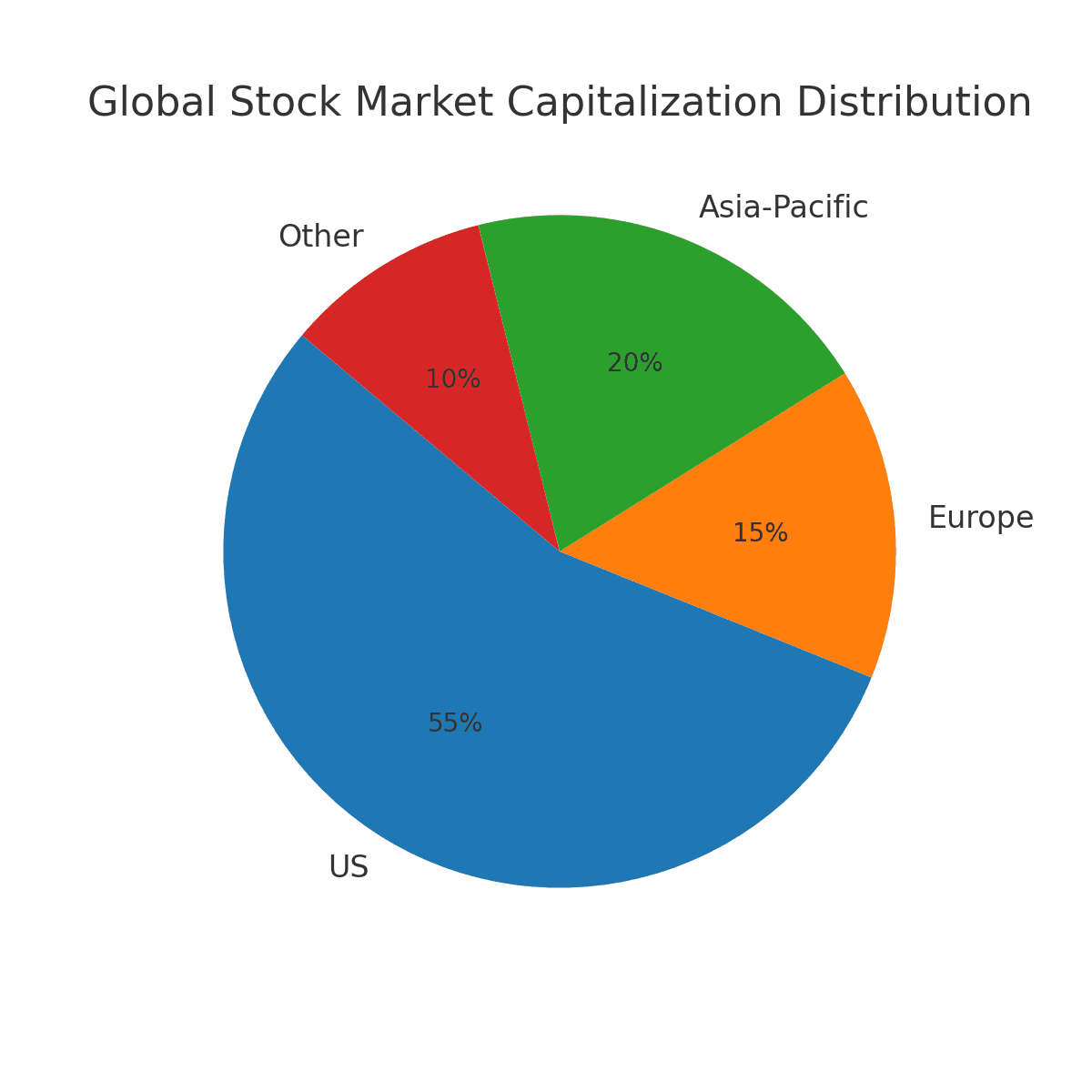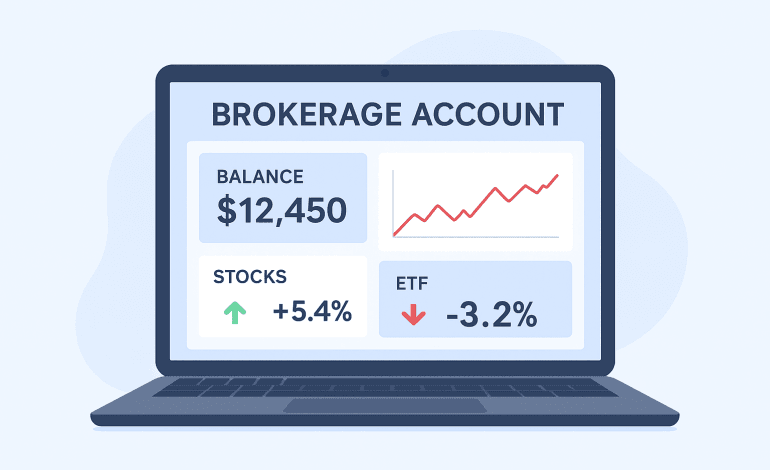
My First Step Into the Stock Market
What is stock market? I still remember the first time I heard the phrase “stock market.” I was sitting in a coffee shop overhearing two professionals discussing how their portfolios had gone up after a major tech company’s earnings report. At that time, all I knew was that people “buy and sell shares” but I had no idea what it truly meant. Fast forward a few years, and after plenty of research, investments, and lessons learned, I realized that the stock market is not just a platform for professionals in suits. It is a gateway for anyone who wants to grow wealth, take part in the growth of companies, and learn how global economies function.
If you are new and asking yourself “What is the stock market?” you are in the right place. This beginner’s guide will break everything down step by step in plain English, free of jargon, while also giving you the confidence to understand how things work.
What is Stock Market? Understanding the Basics
The stock market is a global marketplace where investors buy and sell ownership in companies. These units of ownership are called shares or stocks. Imagine a company is like a large pizza. Instead of one person owning the entire pizza, it is divided into slices. Each slice represents a share of that company. When you buy a slice, you become a partial owner of that business.
The stock market is not one single building or location. It is a network of exchanges where stocks are traded. In the United States, the most famous examples are the New York Stock Exchange (NYSE) and Nasdaq. In the UK, you will find the London Stock Exchange. Canada has the Toronto Stock Exchange. Singapore runs the Singapore Exchange, while Australia trades on the Australian Securities Exchange.
Why Does the Stock Market Exist?
At its core, the stock market has two purposes:
- For companies to raise money – Businesses need capital to expand. By issuing shares to the public, they can raise funds without borrowing huge amounts from banks.
- For investors to earn returns – Individuals, institutions, and even governments invest money into shares hoping to grow wealth, beat inflation, or save for the future.
This creates a win-win system. Companies gain money to expand their operations, while investors get a chance to share in the company’s success.
Primary Market vs Secondary Market
To really understand how it works, you need to know there are two parts:
- Primary Market: This is where companies first sell their shares through an Initial Public Offering (IPO). For example, when Facebook went public in 2012, it sold its shares to investors for the first time.
- Secondary Market: After the IPO, shares are bought and sold between investors. So if you purchase Tesla stock today on Nasdaq, you are buying it from another investor, not directly from Tesla.
How Does Stock Trading Work?
Stock trading today is mostly digital. You can open an account with an online broker or investment app, deposit money, and buy stocks with just a few clicks. Behind the scenes, trades are matched electronically on exchanges.
The price of a stock is determined by supply and demand. If more people want to buy than sell, the price goes up. If more people want to sell than buy, the price goes down. News events, company earnings, interest rates, and even global politics can influence this balance.
Types of Stocks You Should Know
Not all stocks are created equal. Here are the main types you will encounter:
- Common Stock: The most typical form that gives you voting rights and the potential for dividends.
- Preferred Stock: These holders get dividends first but usually do not have voting rights.
- Growth Stocks: Companies that reinvest profits to grow rapidly. Examples include tech giants like Apple or Amazon.
- Value Stocks: Stocks that appear undervalued compared to their fundamentals, often seen as “on sale.”
- Dividend Stocks: Companies that share profits regularly with shareholders. Many investors use these for passive income.
Stock Market Indexes: The Health Report of Economies
If the stock market is a hospital, then indexes are like health reports. They give a snapshot of how a group of stocks is performing.
Some of the most famous indexes include:
- Dow Jones Industrial Average (US): Tracks 30 large companies.
- S&P 500 (US): Tracks 500 of the biggest US companies, considered the best indicator of the American economy.
- FTSE 100 (UK): Focuses on 100 major UK companies.
- TSX Composite (Canada): Represents Canadian markets.
- STI Index (Singapore): Covers major Singaporean companies.
- ASX 200 (Australia): A benchmark for Australian stocks.
When you hear headlines like “Markets are up today,” they are usually referring to these indexes.
Why Do People Invest in the Stock Market?
People invest for different reasons, but the main goals are:
- Wealth Growth: Historically, stock markets provide better returns than savings accounts or bonds.
- Ownership in Companies: Owning shares in Apple or Google means you are literally a part-owner.
- Dividends: Regular cash payments from profitable companies.
- Beating Inflation: Stocks generally grow faster than inflation, helping you preserve purchasing power.
- Retirement Planning: In countries like the US, stock investments are a core part of 401(k) or IRA accounts.
Risks of the Stock Market
Of course, the stock market is not a guaranteed money machine. The risks include:
- Market Volatility: Prices can rise or fall suddenly.
- Company Risk: If a company performs poorly, its stock price can crash.
- Economic Risk: Global recessions or crises can drag markets down.
- Emotional Decisions: Many beginners panic when markets drop, leading to poor investment decisions.
This is why experts always stress diversification and long-term thinking.

My Personal Lessons From Investing
When I first started investing, I bought a handful of stocks based purely on hype. Some worked out, others failed badly. The turning point came when I learned about diversification and research. Instead of chasing hot tips, I began studying companies, their earnings, debt levels, and market trends. I also realized that investing is as much about psychology as it is about numbers. The ability to stay calm during a market crash is often what separates successful investors from frustrated ones.
How Beginners Can Get Started Today
If you are new, here are some steps to begin your journey:
- Educate Yourself: Read guides like this, follow financial news, and study investing basics.
- Open a Brokerage Account: Platforms like Fidelity, Charles Schwab, Interactive Brokers, or even apps like Robinhood make it easy to start.
- Start Small: You do not need thousands of dollars. Many platforms allow fractional investing.
- Diversify: Instead of buying just one company, spread your money across different industries.
- Think Long Term: Do not expect to double your money overnight. Compounding works best over years.
The Psychology of the Market
One thing often overlooked is how much human behavior drives markets. Greed and fear play huge roles. When prices go up, people rush in hoping not to miss out. When prices fall, panic selling happens. Understanding these emotions and controlling them is critical for success.
Stock Market vs Other Investment Options
It is natural to ask how the stock market compares to real estate, gold, or bonds.
- Real Estate: More stable but requires higher upfront investment.
- Gold: Seen as a safe haven, especially during crises, but has lower long-term growth compared to stocks.
- Bonds: Lower risk but also lower returns.
- Stocks: Higher risk but historically the best performer for wealth creation.

Common Myths About the Stock Market
- Myth 1: You need to be rich to invest. False. Many platforms let you invest with just a few dollars.
- Myth 2: Only experts make money. False. With basic education and discipline, anyone can succeed.
- Myth 3: The stock market is gambling. While there is risk, gambling is random. Stocks can be researched and understood.
Global Perspective on the Stock Market
Tier 1 countries like the US, UK, Canada, Singapore, and Australia all play unique roles in global markets. The US is the leader with the largest exchanges. The UK is home to some of the oldest exchanges. Canada focuses heavily on energy and mining companies. Singapore is a hub for Asian markets, while Australia is known for commodities and resource companies.
This global connectivity means events in one country can affect markets worldwide. For example, a rate hike by the US Federal Reserve can influence stock prices in Asia and Europe.

Future of the Stock Market: Technology and Innovation
We are entering a new era of investing. Artificial intelligence, blockchain technology, and algorithmic trading are reshaping how markets operate. Fractional investing, robo-advisors, and mobile-first apps are making it easier for everyday people to participate.
At the same time, new asset classes like cryptocurrency are blending with traditional stock investing. While the fundamentals remain the same, technology is making access faster, cheaper, and more transparent.
Final Thoughts
The stock market can look intimidating from the outside, but at its heart, it is a simple concept: a platform where people buy and sell ownership in companies. Once you understand the basics, it becomes less of a mystery and more of an opportunity.
As someone who started with zero knowledge, I can confidently say that learning about stocks has been one of the most rewarding journeys in my life. Not only financially, but also in terms of understanding how businesses and economies run. Whether you are in the US, the UK, Canada, Singapore, or Australia, the fundamentals remain the same: invest wisely, stay patient, and let time do the heavy lifting.



